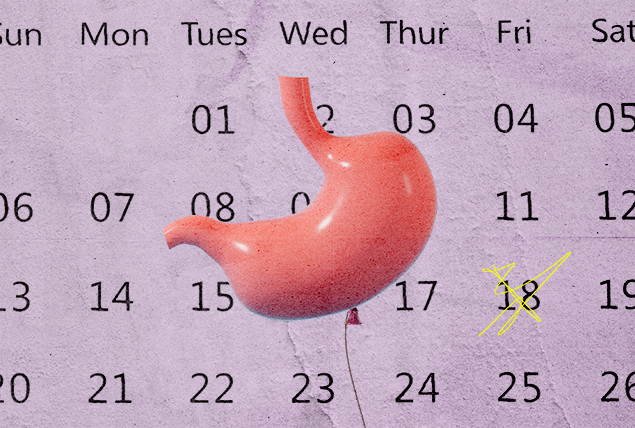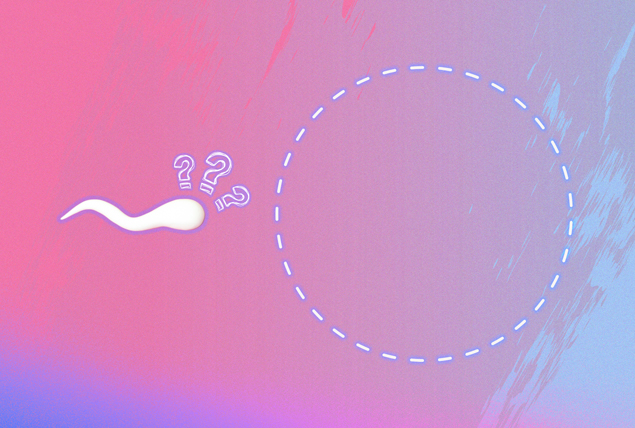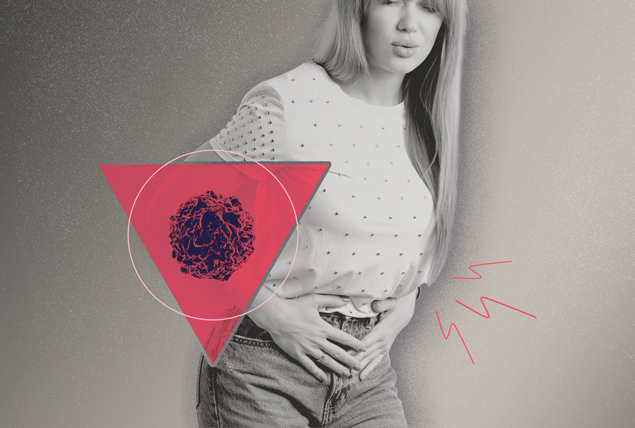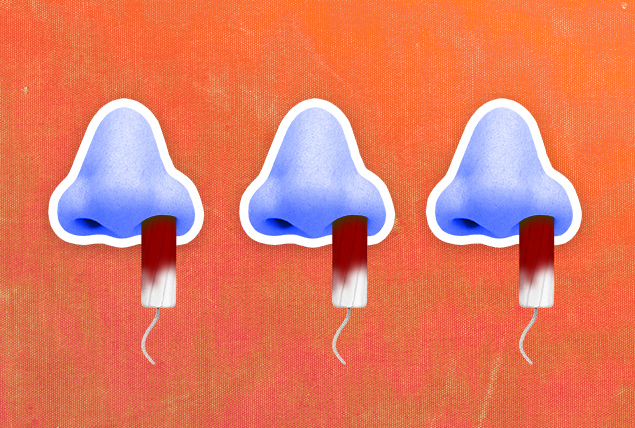Bloating During Ovulation: What It Means and Ways to Manage It

If you've experienced discomfort or tightness in your belly around the middle of your menstrual cycle, you probably know what bloating feels like. It’s a common problem for many women during ovulation.
Why is that? And how can you curb the bloat?
Every fertile woman's body undergoes a natural process called ovulation. During the process, the ovary releases an egg that travels down the fallopian tube on its way to the uterus, said Sophia Yen, M.D., M.P.H., the CEO and founder of Pandia Health, an online health resource for women in Sunnyvale, California.
This process usually occurs around the middle of your menstrual cycle or about two weeks before your next period. You may experience symptoms indicating your body is preparing for pregnancy, though your period will change during life stages.
Common signs of ovulation include:
- Changes in vaginal discharge
- Breast tenderness
- Changes in libido
- Mild pelvic pain
- Cramping on one side of your abdomen
Bloating during ovulation is normal
That feeling of fullness or tightness in the abdomen is bloating. It may be accompanied by gas or general discomfort. Much like period acne, it’s also a normal symptom of ovulation, thanks to the hormonal changes occurring during this time in your menstrual cycle.
Period-induced bloating is an experience shared by about 51 percent of women.
"Estrogen levels rise as your body prepares for ovulation, and this can cause your body to retain more water, leading to bloating," Yen said.
Moreover, the release of an egg can cause irritation in your pelvic area, which may result in discomfort or bloating.
The specifics of why you bloat during ovulation
Bloating during ovulation can be caused by various factors, and understanding these causes can help you manage and prevent them. This third menstrual cycle phase can be attributed to a complex interplay of hormonal changes, fluid retention and gastrointestinal factors.
"There is a rapid increase in estrogen levels during ovulation which is followed by a rise in progesterone levels after the egg has been released," said Alex Polyakov, M.B.B.S., a gynecologist in Melbourne, Australia.
These hormonal changes can lead to fluid retention in the body. The result of all this fluid retention? Bloating and abdominal distension.
"Another possible cause of bloating at times of ovulation is water retention," Yen said, adding this can happen because of changes in your body's sodium levels that lead to excess water retention in your tissues.
Constipation can also be a contributing factor.
"As your hormones fluctuate during this time, it can slow down your digestion and lead to constipation, which in turn can cause bloating and discomfort," Polyakov said.
What are the signs and symptoms of ovulation bloating?
During ovulation, a little weight gain isn’t unexpected. It’s common.
"Bloating by definition is more water than usual. Water has weight. Thus, you may have weight gain from water," Yen noted.
Water retention during ovulation can lead to abdominal discomfort. You may feel a sense of pressure or fullness in your abdomen. Your stomach may appear enlarged or distended, and your clothes may feel tight or uncomfortable. This can be particularly noticeable if you typically have a slim or flat stomach.
"Gas and flatulence are also common while ovulation bloating," Polyakov added. "As your body retains water and experiences hormonal changes, it can lead to increased gas and bloating."
Some women may even experience nausea. Hormonal fluctuations during your period are responsible.
What's the difference between PMS bloating and ovulation bloating?
"The difference between ovulation bloating and PMS bloating is the cause of the bloating and the timing of the bloating," Yen said. "Bloating from ovulation comes from surges of estrogen and luteinizing hormone."
Ovulation bloating is caused by water retention. Premenstrual syndrome (PMS) bloating, however, begins before your menstruation cycle. PMS typically occurs one or two days before menstruation, but some women can experience bloating for up to a week. Each person with a uterus can experience the symptoms of bloating differently.
How can I manage bloating during ovulation?
If you’re trying to get your bloating under control, or at least minimize it, there are a few things you can do. Try the following:
- Lifestyle modifications, such as getting regular exercise
- Dietary changes, such as limiting salty foods
- Medical interventions, such as hormonal birth control
"Regular physical activity can help improve circulation and reduce fluid retention, which may help alleviate bloating," Yen said.
Stress-management techniques such as deep breathing, meditation and yoga can improve hormonal balance and reduce the severity of ovulation-related symptoms.
A well-balanced diet rich in fruits, vegetables, whole grains, lean proteins and healthy fats can potentially reduce bloating.
"Reducing the intake of salt, processed foods and carbonated beverages can also help minimize fluid retention," Polyakov said.
Furthermore, consuming smaller, more frequent meals may help reduce the sensation of abdominal fullness and that bloated feeling.
"Apart from lifestyle changes, You can consider going on hormonal birth control—pill, patch, ring, IUD, implant—which keeps your hormones stable," Yen added.
In more severe cases, hormonal therapies such as oral contraceptives may be prescribed to regulate hormonal fluctuations and minimize ovulation-related symptoms.
The bottom line
Experiencing the pain and discomfort of bloating during your period isn’t fun, but hormonal changes make bouts of bloating common. Adjust your lifestyle, skip the junk foods, reduce your salt intake and speak with your doctor about other ways to help minimize your period symptoms.


















